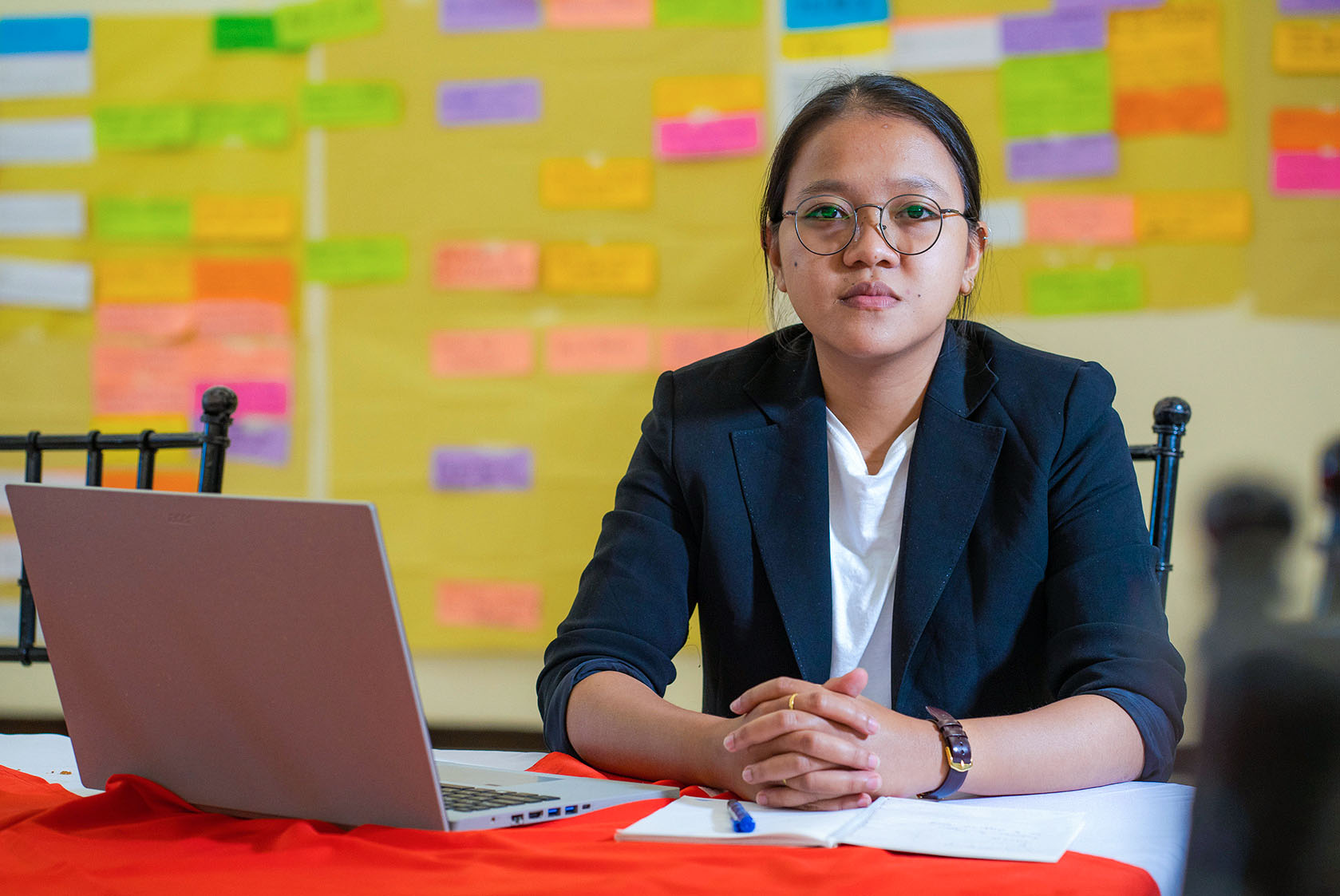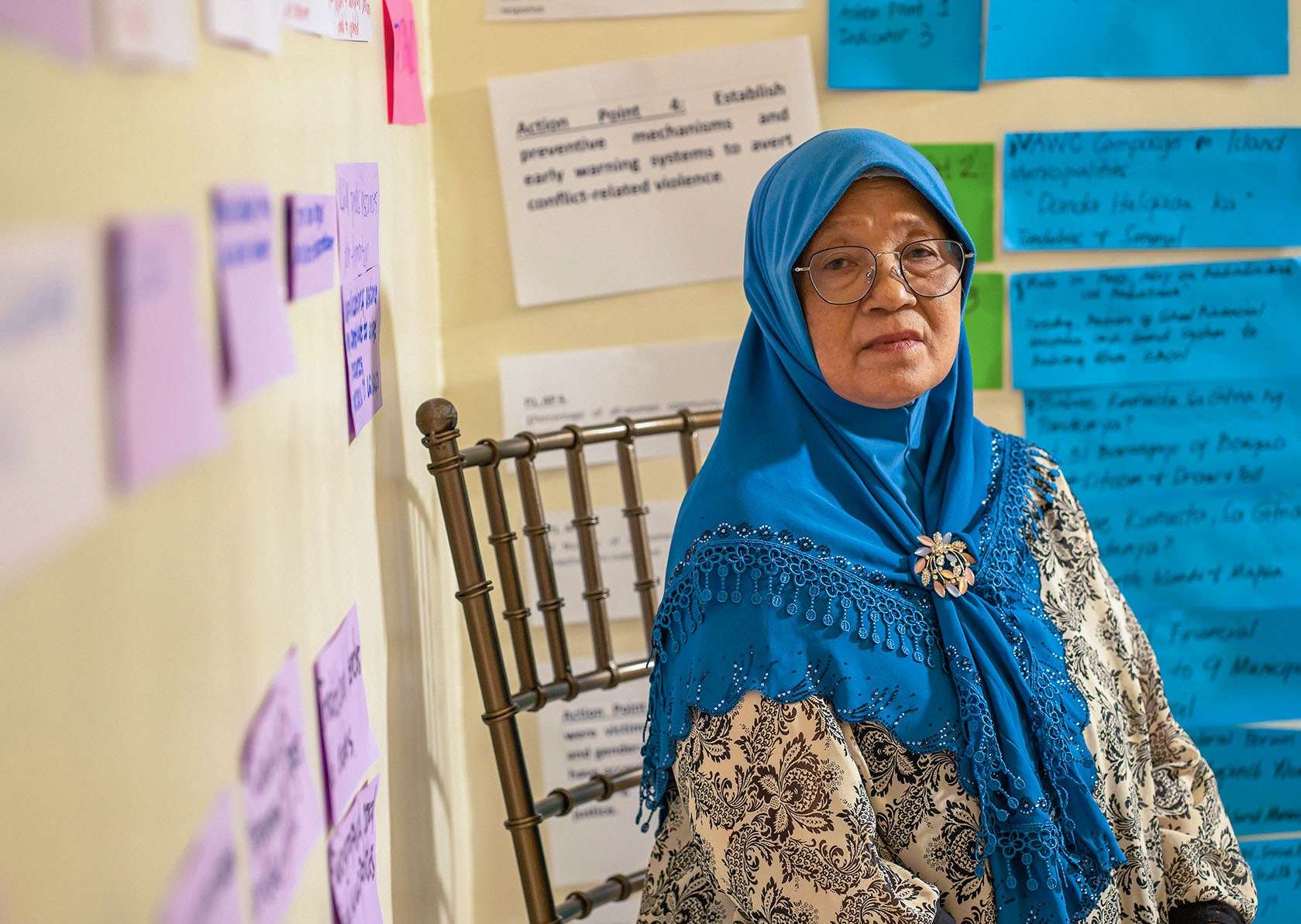UN Women helps strengthen women and peace plan in the Philippines’ Bangsamoro region
Date:
Author: Carol Dawonlay vda Bello
Zamboanga City, Philippines – Women peacebuilders from groups with sometimes-clashing interests have joined together in identifying the successes and gaps of a programme to strengthen women’s security and public participation in the Bangsamoro region of the southern Philippines.
UN Women and United Nations Development Programme jointly organized the dialogues to assess progress made during 2020-2022 of the Bangsamoro Regional Action Plan on Women Peace and Security, which was created in 2017 to locally implement United Nations Security Council Resolution 1325 on Women, Peace and Security. The assessment provided recommendations for improving the implementation of the plan during 2022-2025.
Representatives from regional agencies, local governments and civil society groups took part in the three dialogues, held in May, August and September in Maguindanao, Lanao del Sur, Basilan, Sulu and Tawi-Tawi Provinces and in the Special Geographic Area in North Cotabato Province. The vast majority of the about 220 participants were women.
The Bangsamoro Autonomous Region of Muslim Mindanao is now on its fourth year of transitional government, after the Moro National Liberation Front made peace with the national Government in 1997 and a breakaway group, the Moro Islamic Liberation Front, did so in 2014. The two groups are now working together under the transitional government.
“The assessment reviews at the regional and provincial levels show high accomplishment on the protection of women during and after violent conflict, even while the COVID-19 pandemic was still at its high,” said Nery Nuyda Ronatay, Team Lead for UN Women’s women, peace and security programme in the Philippines. “However, women’s participation in the high-level political process and engagement with the security sector remain as challenges.”

The dialogue participants included Paramisuli Aming, 26, who works for the Bangsamoro Women Commission in Tawi-Tawi. The commission is under the transitional government.
“The Bangsamoro has an ethnically diverse and politically dynamic context,” Aming said. “Through the assessment activities, women who normally would not share the same space to discuss differences had to come together. Being able to talk about specific issues that affect all women, especially in their interrelated conflict contexts, melts both their differences and indifferences.”

Phibibi Akip, a former Moro National Liberation Front combatant in Tawi-Tawi, said she has “fought a long battle”. Akip, now 65, became a combatant when she was only 14.
“I know the hardships during war and the sufferings of being poor,” she said. “Seeing that we are continuing to reach the most isolated and poorest women and their communities, I hope that we will not let go of our peacebuilding and development efforts. Do not back down because war is really hard on people. Women carry the heaviest burden because, really, the family’s survival is on the woman’s shoulders.”
Faija Taalil, 48, former head of the Moro Islamic Liberation Front’s Social Welfare Committee and now the Bangsamoro Women Commission’s Commissioner for Basilan Province, said the review sessions will strengthen peacebuilding efforts while also allowing isolated communities to tell government authorities what development assistance they need most.
The women peacebuilders are pushing for the integration of women-led peace and security initiatives in the yearly gender and development plans and budgets of every government office.
The dialogues were organized through the support of the United Nations Peacebuilding Fund 3; the Supporting Conflict Transformation Towards Effective Peacebuilding (UN STEP); and Governments of Canada, the Republic of Korea, and the United Kingdom of Great Britain and Northern Ireland.